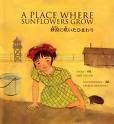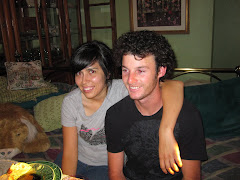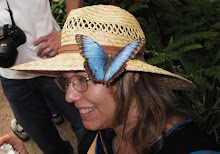I went to the library and found this book. I found it very stimulating to a western mind, and a tool to help understand others from the top of the world.
 These three generations of Tibetan women have very different lives. They are Buddhist from Tibet, very different from the Buddhist of Japan. Buddhist teachings are vague and the interpretation varies from one person to another. Buddhism does not recognize an external God, a personal Creator. But many Buddhists worship images and relics of Buddha. Siddhartha Gautama, who was given the title Buddha, came to be viewed as the religious ideal of his followers, to be imitated by them. He encouraged gaining enlightenment by studying mankind from a human standpoint, also severing the roots of suffering by controlling the mind so as to eliminate all earthly desire. He taught that in this way one might attain to Nirvana, free from the rebirths of transmigration. Buddhist worship their ancestors, because they view these as the source of their life. The Tibetan Buddhist follow the Dali Lama. The idea of the Christian God sending his son to earth is a very foreign thought for them.
These three generations of Tibetan women have very different lives. They are Buddhist from Tibet, very different from the Buddhist of Japan. Buddhist teachings are vague and the interpretation varies from one person to another. Buddhism does not recognize an external God, a personal Creator. But many Buddhists worship images and relics of Buddha. Siddhartha Gautama, who was given the title Buddha, came to be viewed as the religious ideal of his followers, to be imitated by them. He encouraged gaining enlightenment by studying mankind from a human standpoint, also severing the roots of suffering by controlling the mind so as to eliminate all earthly desire. He taught that in this way one might attain to Nirvana, free from the rebirths of transmigration. Buddhist worship their ancestors, because they view these as the source of their life. The Tibetan Buddhist follow the Dali Lama. The idea of the Christian God sending his son to earth is a very foreign thought for them.I can not even imagine surviving what these women have endured. The Himalaya's are very high, very cold, and treacherous. When China invaded Tibet, the Grandmother and others lives were endangered. This is the story of her escape, with her young daughter and how they survived object poverty. Today, Tibetans are scattered through out the earth. If you ever saw the movie "Seven Years in Tibet" you may have an idea of the back ground of these women.
How can the western mind, find some common ground to have meaningful conversations with these of eastern thinking? Buddhists have respect for "holy books," and usually they respect the Bible for that reason. Let them know that the Bible is not mere human philosophy but the authoritative Word of mankind's Creator, Jehovah God. Ask politely if you may show them an interesting point in this holy book, the Bible. Many Buddhists are very interested in peace and family life and want to live moral lives. Discussion on any of these matters is often welcomed. Who knows? By showing a loving, respectful attitude towards these refugees, we may come to have many interesting conversations with our eastern neighbors.



















































































3 comments:
I like that approach of teaching. Especially when teaching those of other cultures. Actually Ronna, I like YOUR approach of teaching the gospel of Jesus Christ and the good example, and gentle loving spirit that you are. I think we can all learn so many things when we understand others. As you know David and I were interested to learn about the Tao, we read the Dali Lama's Biography, Study the Bible, read about the Masonic temple, inquire about some of the catholic's beliefs, even paganism because I didn't even know what that was. David knows more about different religions than I do. He said, before you can teach others, you need to understand where they are coming from. Why they have developed certain beliefs. In this way, I think we are more effective. I think we should understand others beliefs, before you label them. I can see that the Jehovah Witness do study different cultures. The watchtower and the Awake. shows that, in their publications.
Thank you for this post. I enjoyed it.
I cannot take credit for my teaching methods, as I learned them, by observing the way Jesus taught and how others reflect that way of teaching, I still have a lot to learn.
Respect is good, even in disagreement. I took an Eastern Thought and Philosophy class while in college. Learned some on Buddhism, Shinto, the Tao, Confucianism, all that. Very interesting stuff and just proves once again, that all truth comes from our Heavenly Father.
@sandy, one thing I love most about being LDS is the hand hand relationship between western and eastern thought. We'll have to talk more one day.
Post a Comment